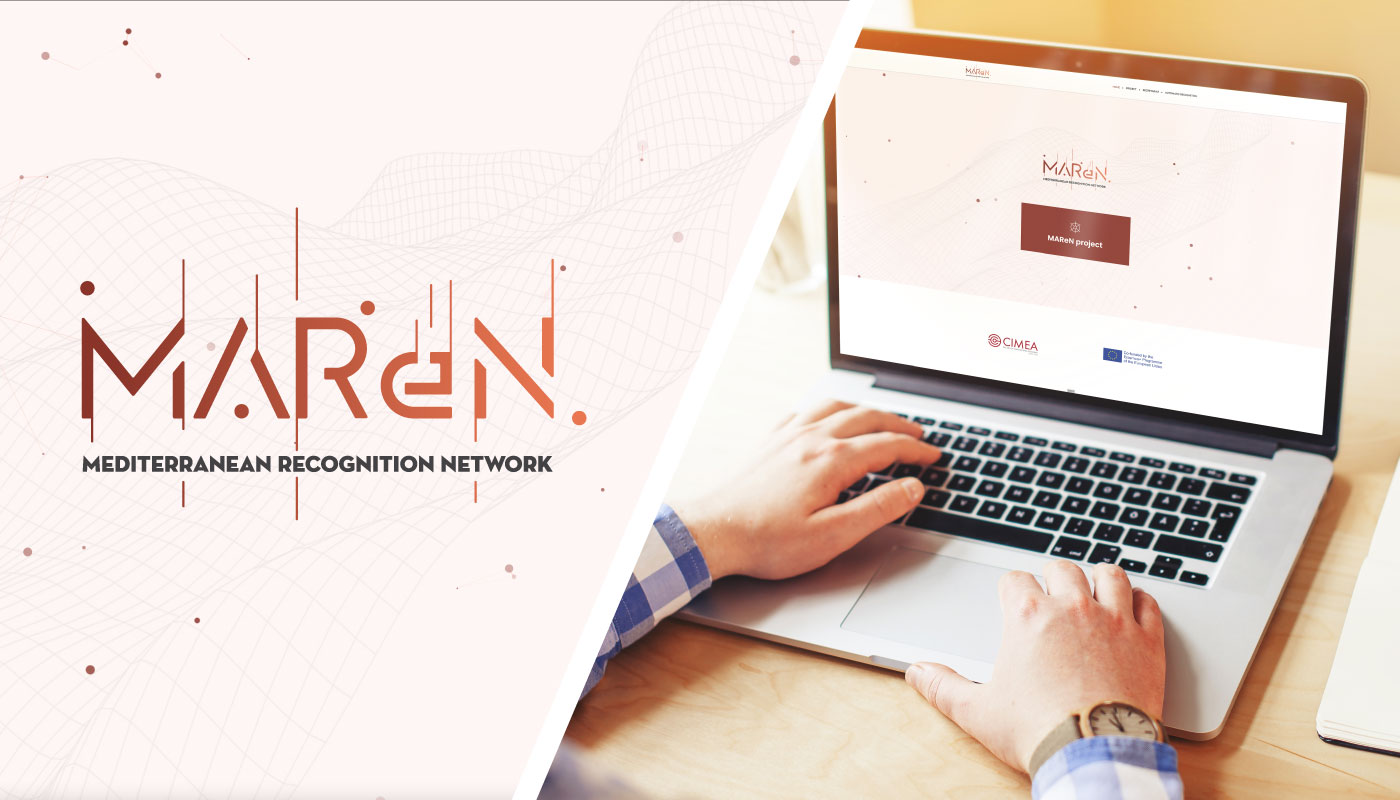MAReN Training

About Course
COURSE DESCRIPTION
In the framework of the WP3 – Development of the training for HEIs of the EU co-funded MAReN project, a training course on the topics related to the concept of automatic recognition will be delivered by the project partners and targeted to academic and administrative staff from higher education institutions from partner countries.
CERTIFICATION
Micro-credential issued on blockchain.
LEARNING OUTCOMES
The specialization course on AR of qualifications aims to provide all participants with knowledge and understanding of the main fundamentals of AR at an international and national level as well as the legislative framework surrounding the topic in the EU and EHEA with a specific focus on the Mediterranean region. The participants will acquire advanced professional skills in applying the use of AR tools and databases available in the EU and EHEA context in order to enhance and implement AR at the institutional level within recognition procedures and internal processes, improving and refining their knowledge on the topic.
Knowledge and understanding
Provide students with thorough knowledge and understanding of:
- The concept of Automatic Recognition of qualifications and its models of application within the EU and EHEA.
- The International and European policies related to the implementation of automatic recognition of foreign qualification within the EU and EHEA.
- The national context: policies and legislation related to the implementation of Automatic recognition in the countries party of the MAReN consortium, namely Italy, France, Croatia, Spain, Portugal.
- The status and legislation regulating transnational education in the countries party of the MAReN consortium, namely Italy, France, Croatia, Spain, Portugal.
- Awareness raising and familiarity with the tools and databases available at national and European level to foster Automatic Recognition.
Applying knowledge and understanding
Students must acquire the skills needed to conduct assessment at their level of knowledge, using various and appropriate tools, consulting databases and/or national and international sources on the topic according to the educational system of reference to apply automatic recognition as much as possible, where applicable. These skills must lead to being able to formulate judgements whilst always being aware of the difference between access and admission and the need of any appropriate in-depth assessment.
Making judgements
Participants must be able to analyse the level of implementation of AR at their institution and identify issues and challenges arising in the institutional processes related to a full application of AR. They are also expected to be able to use the tools and database available in the EU and EHEA to enhance such implementation within the internationalization strategy of their institution, autonomously elaborating further possible developments, working in cooperation with people in different departments, using consolidated models and methodologies.
FINAL ASSESSMENT
Project Work
The project work has the main objective of verifying knowledge and skills gained through the course and consists of an institutional presentation and subsequent discussion of the activity carried out and the results achieved in the framework of the course.
MODULES
- Automatic Recognition: International and European policy context (online) This first module may include the definition and history of the concept of automatic recognition, theoretical framework and various models of implementation of automatic recognition currently used.
- Automatic Recognition: national policy contexts (online) Each partner country – namely Croatia, France, Italy, Portugal and Spain – will present how automatic recognition is implemented in their educational system.
- Automatic Recognition tools and databases (online) Tools to enhance the implementation of automatic recognition among the ENIC-NARIC networks and European Higher Education Area (EHEA) will be presented, as well as all the new resources and documents related to the topic.
- Transnational Education (TNE) and implementation of Automatic Recognition at institutional level in the context of higher education institutions (in presence) In this module, participants in national groups can present an analysis of the good practices on the implementation of automatic recognition at national level, deepening the focus on the challenges and the next steps on AR from the HEIs point of view (including: TNE, European University Alliances, etc.).
- Digitalisation to support Automatic Recognition and Final Workshop (in presence) All participants might take part in focus groups, where national theories and practices can be deepened. The information gathered would constitute the final project work.
For further detailed information about the MAReN course consult the Informative brochure at the following link: https://recotraining.eu/wp-content/uploads/2024/07/MAReN-Informative-Brochure.pdf.
Course Content
Module 1 | Automatic Recognition: International and European policy context
-
Automatic Recognition: International and European policy context
-
Resources for self-study
-
Final quiz
Module 2 | Automatic Recognition: national policy contexts of the countries member of the Mediterranean Automatic Recognition Network
Module 3 | Automatic Recognition tools and databases
Module 4 | TNE and implementation of Automatic Recognition at institutional level in the context of higher education institutions (in presence, 30.05.2024 Rome)
Module V | Final Workshop
Student Ratings & Reviews

Want to receive push notifications for all major on-site activities?
